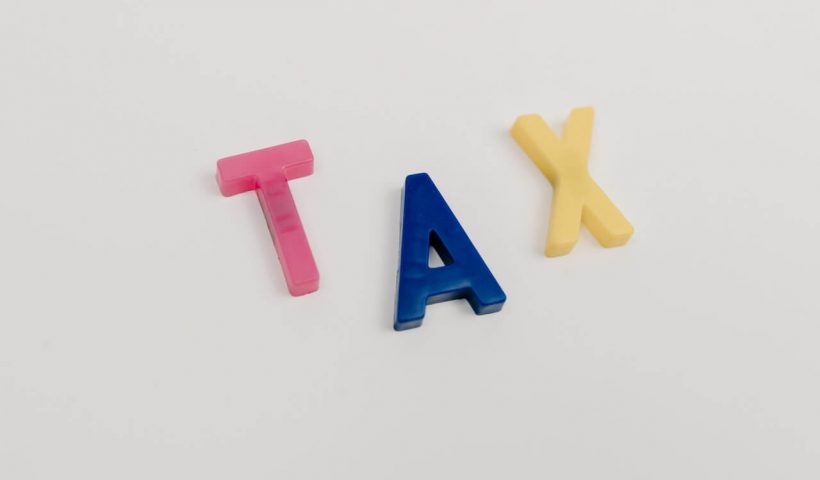Important Things About VAT For Beginners

Well, what can we say- taxes aren’t easy. There’s always lots of rules and exceptions around them. If you’ve never been VAT registered before, this area can be scary and complicated. But this article will help you understand the most important things about VAT without using a complicated language.
What is VAT?
VAT stands for value added tax and it’s a type of indirect tax. Indirect tax means that the payment of tax is passed onto another entity. So, let’s say your business is VAT registered. You add VAT to your sales invoices and send them to your clients. It’s then your clients who pay the VAT element to you, so they pay the full invoice amount. You then pass the tax collected from them to HMRC. You’re basically a middle man, hence indirect tax.
Who pays VAT to HMRC?
VAT is paid by businesses with a taxable turnover exceeding £90,000. This is the current VAT registration threshold (April 2024). Please bear in mind this threshold can change, usually in April, so always check the most up to date VAT registration threshold on HMRC website. The VAT registration isn’t specific to any type of business, so regardless of whether you’re self-employed, in a partnership or run a limited company, you will have to register for VAT if you exceed the registration threshold.
Taxable turnover means all turnover, so money your business earns, that isn’t exempt from VAT. All services and products either attract a certain rate of VAT or are outside of VAT scope. If you’re not VAT registered yet but you want to check whether you are close to the VAT registration threshold, you would look only at your turnover that isn’t exempt from VAT to establish this.
When can I start charging VAT?
You can only start charging VAT once you are VAT registered and have a VAT registration number. What happens when you go over the VAT registration threshold? Is the registration automatic? No, it’s you who needs to register your business for VAT with HMRC. If you exceed the VAT registration threshold before you are registered for VAT, you will have to pay the VAT liable to HMRC. Even if you didn’t charge VAT to your clients.
Different VAT schemes
There is more than one VAT scheme, so when registering for VAT make sure you either research the topic thoroughly or ask for help from a professional accountant. Different VAT schemes can have different thresholds and some schemes can be more beneficial to your type of business than others. If you’re not sure, an accountant can help you compare them. Please bear in mind that choosing the right scheme is not necessarily only a matter of looking at their rules. Sometimes you will need to do certain calculations to come up with the right answers. An accountant can definitely help with this. Some schemes can be also combined together.
Available VAT schemes are:
- Standard VAT Accounting Scheme
- Flat Rate Scheme
- Cash Accounting Scheme
- VAT Annual Accounting Scheme
Modern accounting services in Oxford
Looking for an accountant to help you with VAT returns?
Book a confidential chat about your needs with our Oxford accountants.
How often do you submit VAT returns?
Usually, you submit VAT returns every quarter. A VAT quarter doesn’t necessarily start from January, so when you register for VAT, make sure you understand what your quarters are. If you’re using Annual Accounting Scheme, you submit a VAT return once a year.
How do you calculate your VAT return?
In a big nutshell, your VAT liability is calculated by deducting VAT you paid on purchased from VAT you collected from your clients on your sales. With a digitalisation of the UK accounting system (called Making Tax Digital), calculating your VAT returns isn’t always complicated. However, it will depend on your business and sector you operate in. Also, they key here is bookkeeping. Make sure you hire a professional bookkeeper to either record your business transactions regularly or at least review them for your VAT returns. There are rules about when you can claim VAT.
Remember that you can only claim VAT on purchases if your business is VAT registered. If it’s not, it doesn’t matter that what you purchased had VAT. You can’t claim this VAT back. You have to absorb it as your business cost. That’s why it’s important to get a professional advice from an experienced accountant. Especially if you’re just starting your journey with VAT.
When can you claim VAT back from HMRC?
Being registered for VAT doesn’t always mean it’s you who has to pay money to HMRC. Sometimes it will be HMRC that will have to return money to you. This can happen if the VAT you collected on your sales is lower than the VAT you paid on your purchases. In these cases, after submitting your VAT return, HMRC will issue a refund to you.
How long to keep VAT records?
Keeping business records when being VAT registered is extremely important. Without valid VAT records, you can’t claim VAT back from HMRC. Make sure you have a solid bookkeeping system for keeping business records organised. For VAT purposes you have to keep business records for at least 6 years.
Should I increase my prices if I become VAT registered?
There are no strict rules about how you should incorporate VAT into your sales. It will really depend on your business’s individual situation. You will also have to look at your market and your clients. You can either add VAT on top of your current prices or you can absorb the VAT into the prices. The first option means your net sales, so what you keep in your business, stay the same. The second option means a reduction to your net sales. This is also an area where a professional accountant can help you.
Example
- Current sales price before VAT registration £100
- Option 1 £100 + VAT = £120 – price for your client changes
- Option 1 £83.34 + VAT = £100 – price for your client stays the same
Why not get in touch with our professional accountants from Oxford today to see how we can support your business.

Your Accountant in Oxford
Oxford Office
Joanna Bookkeeping
The Wheelhouse Angel Court
First Floor, Angel Court
81 St Clements St
Oxford
OX4 1AW
Connect
joanna@joannabookkeeping.co.uk
01865 591952





